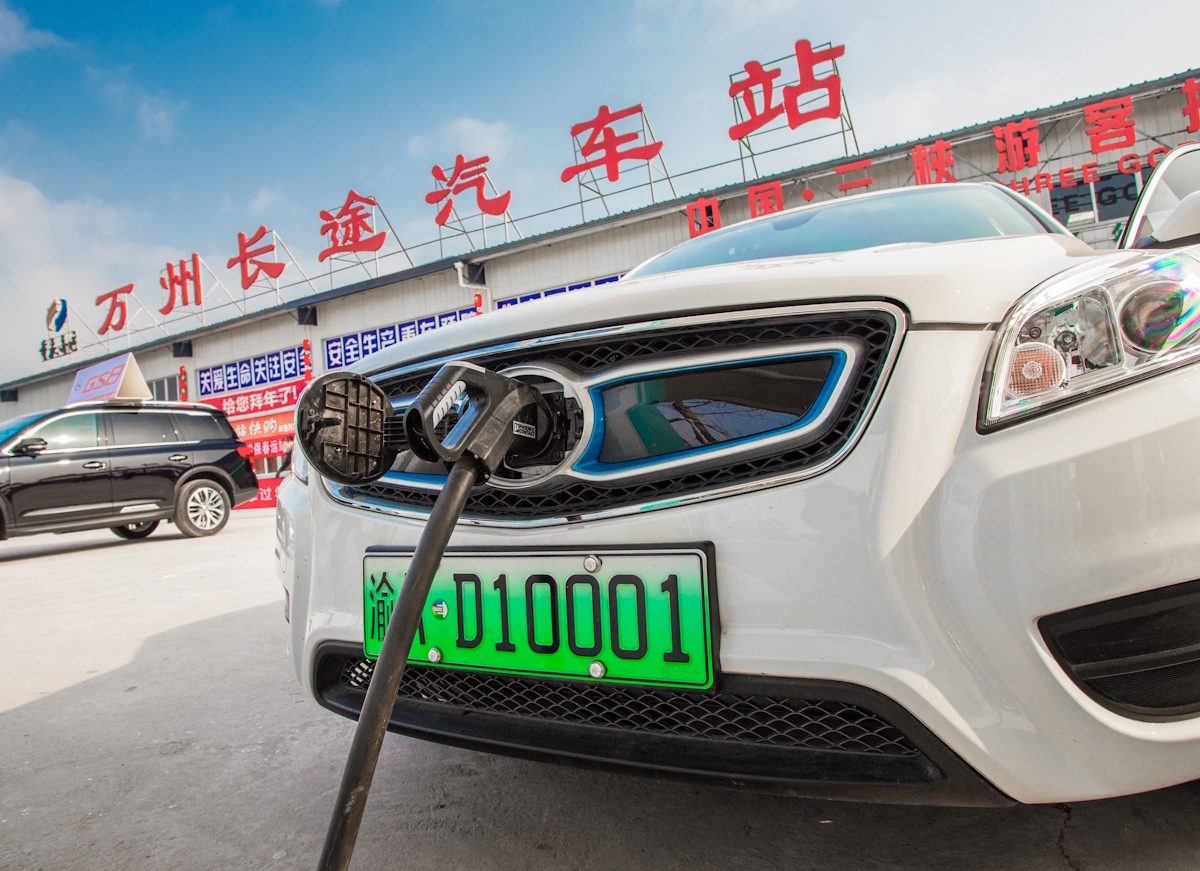2023 has been a record year for electric vehicles (EVs). Global sales of full-electric and plug-in hybrids rose 31% last year, hitting 13.6 million units, according to market research firm Rho Motion. Asia is the battleground of the electric vehicle market, with China being the front-runner. More than 8 million EVs were sold in the country alone last year.
Now, Xiaomi, one of the world’s biggest smartphone makers, joined Asia’s EV battle. The Chinese smartphone maker officially launched its SU7 Series electric sedans in late March.
“Its competitive pricing strategy was well-received by the market, and the initial preorders of 50k/89k units in the first 27min/24hr are above market expectations, mainly due to its competitive specs, self-developed autonomous driving technology (Xiaomi Pilot), and unique integrated AIoT ecosystem,” highlights analyst CMB International.
With 299,900 yuan ($41,500), the SU7 is priced at less than half that of EVs offered by Tesla.
It took Xiaomi only about five years to climb the ranks in the smartphone world. It will be interesting to see how fast the company can gain a foothold in the competitive EV sector. Xiaomi CEO Lei Jun says Xiaomi will become “one of the world’s top five automobile brands in 15 to 20 years.”
Not an easy entry into the highly competitive market for EVs
Xiaomi plans to provide cars in all EV categories. What might be a plus point is that the company already has a large customer base as a top global smartphone maker. According to researcher IDC, Xiaomi is the third largest manufacturer behind Apple and Samsung.
However, the competition is fierce. BYD, the Chinese company that began making vehicles the same year as Tesla just over 20 years ago, produced over 3 million cars last year, including 1.6 million battery-only and 1.4 million hybrids.
“We estimate Tesla and BYD will each lose 1,000 – 1,500 units per month (to Xiaomi),” said Blue Lotus Research Institute, which publishes on Smartkarma.
BYD dominates the EV market in China with 33.8% market share in 2023, followed by Tesla (7.5%), GAC Aion (6.0%), SAIC-GM-Wuling (5.8%), Li Auto (4.7%), Changan (4.3%) and Geely (4.1%).
“We are increasingly seeing the rise of domestic brands like BYD that are not only dominant at home but making an impact beyond,” points out Raheel Altaf, emerging markets fund manager at UK–based asset manager Artemis.
BYD, Geely, and Nio – all have global ambitions. Customs data by the European Union show, for instance, that Chinese EV imports into the EU in the first seven months of 2023 increased by 112% in the year and by 361% in 2021. BYD’s Atto 3 was the best-selling electric compact SUV in Europe last year.
“BYD now has plants around the world, including Brazil, Hungary and India. Those who have seen its factories rave about the company’s technology – the only people seen on the factory floor are inspecting finished cars or fixing robots,” says Altaf.
According to him, other Chinese brands to watch out for include Dongfeng, SAIC (owner of the MG brand), Nio and Xpeng.
“At this stage of the market’s development, we think it’s very difficult to identify which EV vehicle manufacturers will rise to the top – especially since it’s hard to predict which of the new entrants will successfully penetrate markets in Europe, Latin America and North America,” opines James T. Tierney, Chief Investment Officer – Concentrated US Growth, at AllianceBernstein.
“While EVs span a range of price points and features, they all have something in common: many of the electrical components needed are similar. As a result, we believe the pick-and-shovel providers are better positioned to offer earnings growth from EVs than global automakers,” Tierney adds.










 Australia
Australia China
China India
India Indonesia
Indonesia Japan
Japan Malaysia
Malaysia Philippines
Philippines Singapore
Singapore South Korea
South Korea Taiwan
Taiwan Thailand
Thailand Vietnam
Vietnam
 Germany
Germany Hong Kong
Hong Kong USA
USA Switzerland
Switzerland Singapore
Singapore









